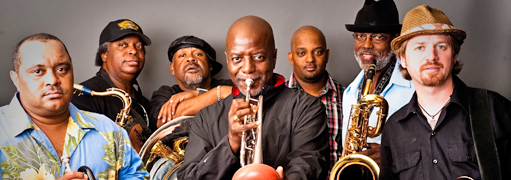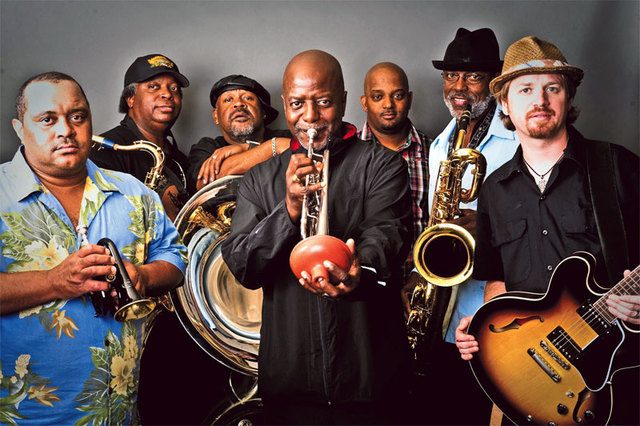Dirty Dozen Brass Band
Saturday, July 21, 9 p.m. Route 66 Nob Hill Summerfest Central and Girard Admission: free, all-agesrt66central.com Sunday, July 22, 7:30 p.m. with Allen Toussaint The Lensic 211 West San Francisco, Santa Fe Admission: $15 to $45, all-ageslensic.orgdirtydozenbrass.comSpotlight: Dirty Dozen Brass Band
Makin’ It Do What It Do For 35 Years


Roger Lewis, pictured second from right.








